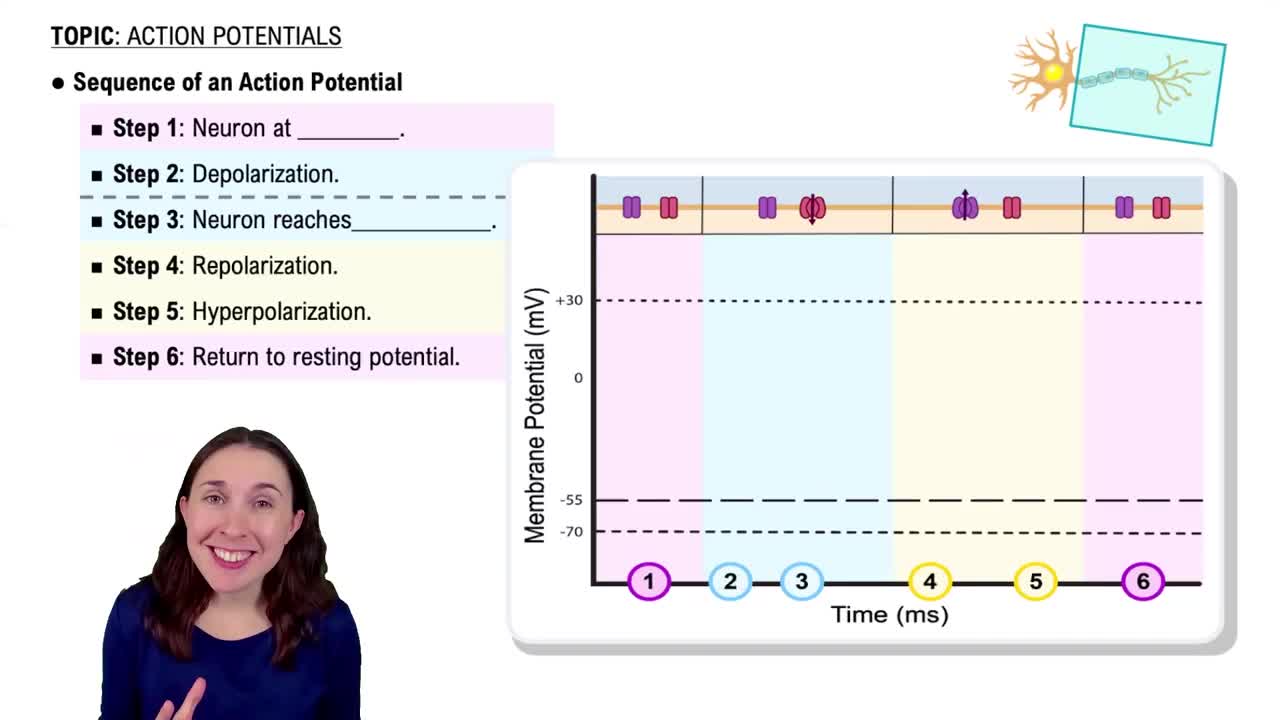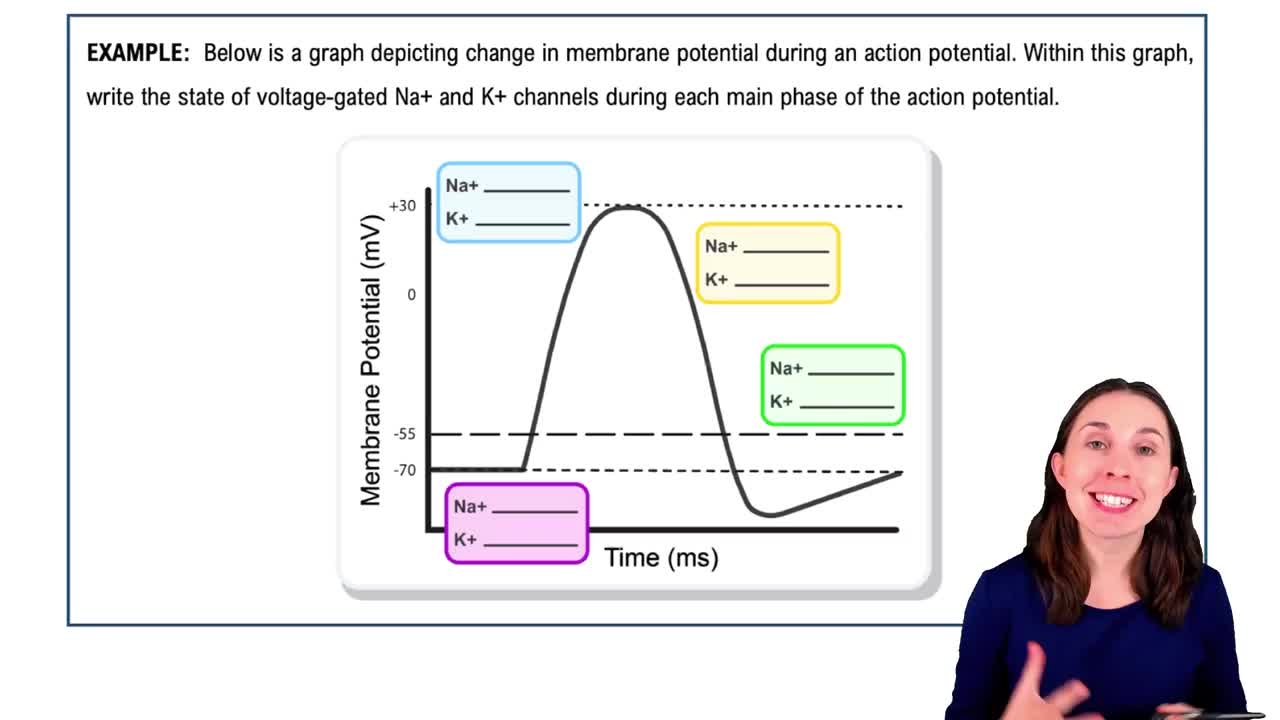Action Potentials definitions Flashcards
 Back
BackAction Potentials definitions
1/15
Terms in this set (15)
- Action PotentialA rapid rise and fall in membrane potential across a neuron's axon, crucial for nerve signal transmission.
- Resting PotentialThe stable, negative charge of a neuron at rest, typically around -70 millivolts.
- DepolarizationThe process where a neuron's membrane potential becomes more positive, moving towards zero.
- ThresholdThe critical level of membrane depolarization, around -55 millivolts, needed to trigger an action potential.
- Voltage-gated Sodium ChannelsProtein channels that open in response to membrane depolarization, allowing sodium ions to enter the neuron.
- Voltage-gated Potassium ChannelsProtein channels that open during depolarization, allowing potassium ions to exit the neuron, aiding repolarization.
- RepolarizationThe process of returning the membrane potential to a negative value after depolarization.
- HyperpolarizationA state where the membrane potential becomes more negative than the resting potential.
- Sodium-Potassium PumpA cellular mechanism that restores resting potential by moving sodium out and potassium into the neuron.
- Electrochemical GradientThe combined effect of an ion's concentration gradient and electrical charge across a membrane.
- Graded PotentialsSmall changes in membrane potential that can initiate an action potential if they reach threshold.
- Excitatory Postsynaptic Potentials (EPSPs)Postsynaptic potentials that make a neuron more likely to fire an action potential.
- Membrane PotentialThe voltage difference across a cell's plasma membrane, crucial for action potential generation.
- Ion ChannelsProteins that allow specific ions to pass through the membrane, essential for action potential dynamics.
- NeuronsNerve cells that transmit information via electrical and chemical signals, fundamental to the nervous system.


